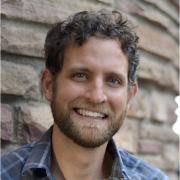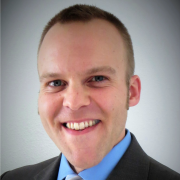|
 
Joanne Belknap and Hillary Potter, Ethnic Studies
Courses: ETHN 3044: Race, Class, Gender & Crime (RCGC) ETHN 3314: Violence Against Women & Girls (VAWG)
The goals of “Race, Class, Gender, & Crime” is for students to understand, examine, and evaluate the roles and intersections of race, class, and gender (and additional forms of oppression) in criminology theories and the criminal legal system. The course includes examining and appraising victimization, offending, the link between victimization and offending, and workers in the criminal legal system (e.g., police, prison/jail guards, lawyers, and judges).
In “Violence Against Women & Girls,” students will understand, examine, and evaluate gender-based abuse – primarily rape/sexual abuse, intimate partner abuse, and stalking – with sections on theories, victimization, offending, and criminal legal system responses to victims and offenders. This course is taught with a consistent evaluation of the intersections of gender, race, and class, as well as other forms of oppression.
Students in both courses will work with inmates as part of the Inside-Out Prison Exchange Program. In this program, undergraduates and inmates interact as peers as they attend the same class together inside a correctional institution. In addition to helping inmates pursue educational coursework, undergraduates (“outside students”) will also responsible for conducting research and collecting materials for the project since the “inside” students are not able to access a university library or the internet.
|
|

David Ciplet, Environmental Studies
Course: ENVS 3525: Intermediate Environmental Problem Analysis: Topical Cornerstones: Waste and Global Justice
The course leads from the premise that we all contribute to the problem of waste, but its impacts are often hidden. As an issue intricately linked to the organization of global and local economies, it provides a window into systems of inequality and efforts to achieve a more just and sustainable world. Through in-depth discussion, readings, writing, film, role-plays, guest speakers, and community engagement projects, the class will explore the causes and consequences of waste, and opportunities for transformative change.
The proposed community engagement project will serve as a means for students to achieve two primary goals. First, the project will enable students to interact directly with individuals and organizations around the world that are engaging in diverse strategies for social change on issues of waste as part of the Global Alliance for Incinerator Alternatives (GAIA). Second, students will contribute to building a network mapping resource. As part of this, they will learn how to engage responsibly with community organizations despite distinct power differentials, particularly in terms of following the lead of community members. The global nature of this project offers a particularly interesting context in which to pursue conversations about the ethics and practices of community-based learning.
|
|

Bethy Leonardi, Education
Course: EDUC 2800/6804 Queer(ing) Topics in Education
Students in this course will gain an understanding of and bring critical and queer theoretical perspectives to bear on an inquiry into what’s counted as “normal” in the social, historical, and political contexts of K-12 education in the United States. They will explore queerness, queer theory, and queer pedagogy, in an effort to examine schooling as a heteronormative institution that has tended toward (re)producing heterosexism, homophobia, and violence against queer bodies and identities. Through research literature, and in partnership with district leadership, school administrators, teachers, & students, they will explore what queer theory can and has offered school communities aiming toward anti-oppressive and liberating pedagogies and practices. Using queer perspectives, they will examine policy, curricula, and models of practice to inquire into what’s involved in organizing classrooms, schools, and districts that are safer and more affirming of gender and sexual diversity (GSD). Community-based activities could include: supporting school communities to develop and launch Allies Clubs, or Queer or Gay/ Straight Alliances (Q/GSAs); designing and facilitating GSD-affirming activities/ lesson plans in classrooms or for school communities; providing relevant research to community partners; compiling and annotating district- generated curriculum that affirms GSD for distribution within the district.
|
|

Lev Szentkirályi with Steve Lamos, Program in Writing and Rhetoric
Course: WRTG 3020 Global Justice
This course has four key goals. The first is to expose students to a brief survey of contemporary philosophical literature on important issues of international politics—including, e.g., the treatment and rights of migrants and refugees, structural injustices that create or tolerate stark economic inequalities and environmental racism, and our collective responsibility to prevent systematic violence against innocent civilians. The second is to reinforce principles of good academic writing that students learned in their first-year writing courses, by having them apply lessons of rhetorical analysis to real world states of affairs. The third is to motivate students to think beyond themselves and appreciate the hardships others endure, and to have them develop a sense of civic responsibility toward victims of injustice, by having them volunteer with Intercambio de Comunidades to help Latino immigrants in the Boulder area integrate into their new communities. This community involvement should reveal the practical relevance of the abstract ethical principles students explore during the semester. In this same vein, the final goal of the course is to have students generate new knowledge by synthesizing their community engagement—and the practical lessons they gain from working with local immigrants—with the theoretical instruction on global justice they receive in the classroom.
|
|

Eyal Rivlin, Jewish Studies
Course: Jewish Studies 3950: Jewish Studies Social Action and Civic Engagement Internship
JWST 3950 will be designed to create a dialogue between the Jewish textual tradition of thought/discussion/argument and the practice/meaning of civic engagement and the actual activity of civic engagement in the field. Through the study of selections from Judaism’s 3000-year-old discussion about improving (or repairing) the world, students will explore the moral, religious, legal, and intellectual spheres of Jewish thought on how communities need to be structured in order to provide the highest degree of equal opportunity and treatment for the greatest number of citizens. As the class explores these concepts, we will regularly apply ideas we glean from texts to real life situations, especially experiences with our community partners, to examine how civic-minded individuals and institutions make hard choices among competing, often mutually exclusive values and ideals. Students will be placed in a variety of Internships in the region including Rep. Jared Polis’ office, Boulder Jewish Community Center, Congregation Har Hashem, Boulder County Aids Project, Hazon, and Building Bridges.
|
 CU Engage is pleased to announce our new cohort of Faculty Fellows in Community-Based Learning for the 2016-17 year. The aim of the Faculty Fellows Program is to expand, deepen, and institutionalize community-based learning at CU-Boulder.
CU Engage is pleased to announce our new cohort of Faculty Fellows in Community-Based Learning for the 2016-17 year. The aim of the Faculty Fellows Program is to expand, deepen, and institutionalize community-based learning at CU-Boulder.






